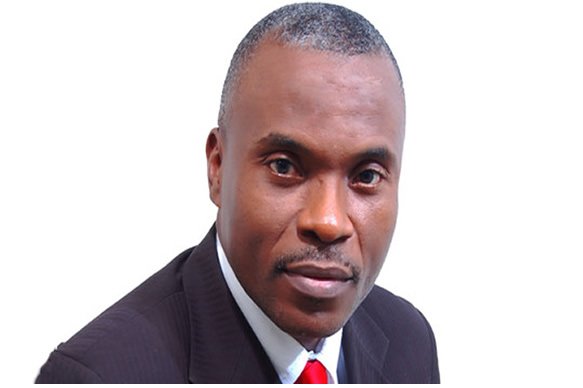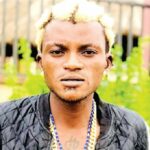
The conduct of the Osun State election over the weekend and that of Ekiti State a month ago was heart-warming. There was unanimity that the election was transparent and devoid of government influence. The only dent it had was that there was a clear case of vote buying. Observers noted that the key candidates and parties engaged in inducing voters with money. But what is not obvious is whether the money influenced voters to change their original and innate preference of candidates.
In Ekiti State, the ruling All Progressives Congress won the election. The opposition Peoples Democratic Party was displaced from the second position by the Social Democratic Party, whose candidate emerged from the PDP. However, the combined votes of the SDP and PDP were not up to the votes of the APC.
In Osun State, it was a different scenario as it was a two-horse race between the ruling APC and the opposition PDP. Interestingly, the contest was a repeat of the 2018 election in many respects. It was a tight race and a contest between the same two candidates. In 2018, the Independent National Electoral Commission declared the election inconclusive with Senator Ademola Adeleke of the PDP leading with 354 votes, although he complained that he was leading with 4,740 votes. However, after the re-run election in areas where the election was cancelled earlier, Oyetola of the APC overtook Adeleke. Many saw the result of the re-run as inconsistent with the pattern of voting on the first day of voting where the two candidates were running neck and neck in virtually all parts of the state.
These are two elections that came after the signing into law of the new Electoral Act. Highlight of this new law is that INEC can transmit results from polling units electronically to its central system. In the past, this could only be done physically by electoral officials taking the result sheets to the collation centre under which they operated. It was usually during this process of physical transmission of results that they got tampered with.
In addition, there was always the excuse that some riverine or hinterland areas were too far away from town that they had to be waited for to bring in their results. But this was usually an excuse for the political parties to gauge the results released from other locations and then decide how high to pad the results from such distant locations in order to defeat their opponents.
But in both Ekiti and Osun states, the results from all the local governments were ready by Saturday night. The electoral officers in charge of each local government area merely officially came to the central collation centre to announce the results one after the other for the sake of transparency. Before daybreak, the winner had been declared.
The conduct of the election and declaration of the results were so transparent that even members of the losing side could easily see that they were defeated fairly. As usual, only the losing candidates and their parties believe that they were not defeated and would go to court to know if they could get the result overturned as had been done in many cases when elections were poorly conducted.
Even though they were merely doing their job, the President, Major General Muhammadu Buhari (retd.), and the INEC Chairman, Prof Mahmood Yakubu, should be commended for the quality of elections they have supervised in recent years. In September 2020 and November 2021, the quality of elections conducted in Anambra and Edo states was good. In Anambra State, the All Progressives Grand Alliance won while in Edo State, the Peoples Democratic Party won.
The electoral body upped their game in the two latest state elections by adding face recognition to its biometric identification process. Before, it was using only finger prints, which sometimes proved ineffective. One clear trait INEC has displayed is the love for continuous upgrading of its equipment and processes over the years by trying to remove areas of tackiness. Even when politicians tried the usual blackmail of wanting to circumvent the electronic transmission of results with the excuse that some parts of the country might not have access to the Internet, INEC surprisingly stood firmly in support of electronic transmission of results.
If Buhari and INEC can detach themselves from the conduct of election and midwife transparently free and fair elections in 2023, especially in the presidential election, they will have done a great service to Nigeria, with Buhari redeeming some of his battered image as an underperforming President. Having done much harm to the nation’s economy, security and unity, Buhari can leave the scene next year by organising an election he can be remembered for positively.
After the return of democracy in 1999, Chief Olusegun Obasanjo, who was the President between 1999 and 2007, messed up Nigeria’s electoral system and made it a joke. Because the then ruling PDP was sure of “winning”, courtesy of INEC, it became very haughty. In the short two years he was fully in charge as President, Alhaji Umaru Yar’Adua sustained what Obasanjo did by not stopping INEC from toying with results. Between 2010 and 2015, Dr Goodluck Jonathan took steps to sanitise the electoral process by allowing INEC to operate without interference. There was a renewed interest in elections as votes began to count. People who edged out unfairly in the big parties joined smaller parties and won elections. But in 2015 when Buhari came in, much of that was reversed.
Adeleke’s 2018 electoral case in Osun State is an example of an electoral downturn. In 2015 when Jonathan was in office, Rita Orji of the PDP won the House of Representatives election in Ajeromi/Ifelodun federal constituency in Lagos. In 2019 when Buhari was in office, she won it again. But INEC declared the election inconclusive and announced a re-run election. When the re-run took place, in spite of the court order against INEC, huge votes were allocated to her opponent to upturn her victory. In Amuwo Odofin in Lagos, thugs were used influence the result. Buhari looked away. In Imo State, the Supreme Court (which Buhari had influenced by removing the Chief Justice of Nigeria, Justice Walter Onnoghen, and replacing him with his own candidate, Justice Tanko Muhammad) declared the number 4 man the winner.
There are many other instances across the country. It was surprising that Buhari, who lamented that he was a victim of Obasanjo’s years of electoral injustice but eventually became the beneficiary of Jonathan’s electoral transparency, would be in charge at a time of electoral impunity and travesty. For many years, he also refused to sign the new electoral bill until this year.
However, Buhari’s recent disposition to elections is soothing. Maybe it is because he will no longer be a candidate in any election. If Buhari continues this way into the 2023 elections, Nigeria will get a transparent election in which the choice of the people will be respected. And for the first time, youth are keenly interested in voting.
Once the result of elections reflects the wishes of the people, then power has effectively returned to the people. The implication is that nobody can boast anymore of being a “power broker” or “political godfather” or “Mr fix-it.” Using the dollar and naira to buy delegates at party primaries will no longer make any meaning as popular candidates can join smaller parties and be voted in by the people who have the final say.
That is how countries get transformed from Third World to First World. Buhari should not miss this opportunity.





